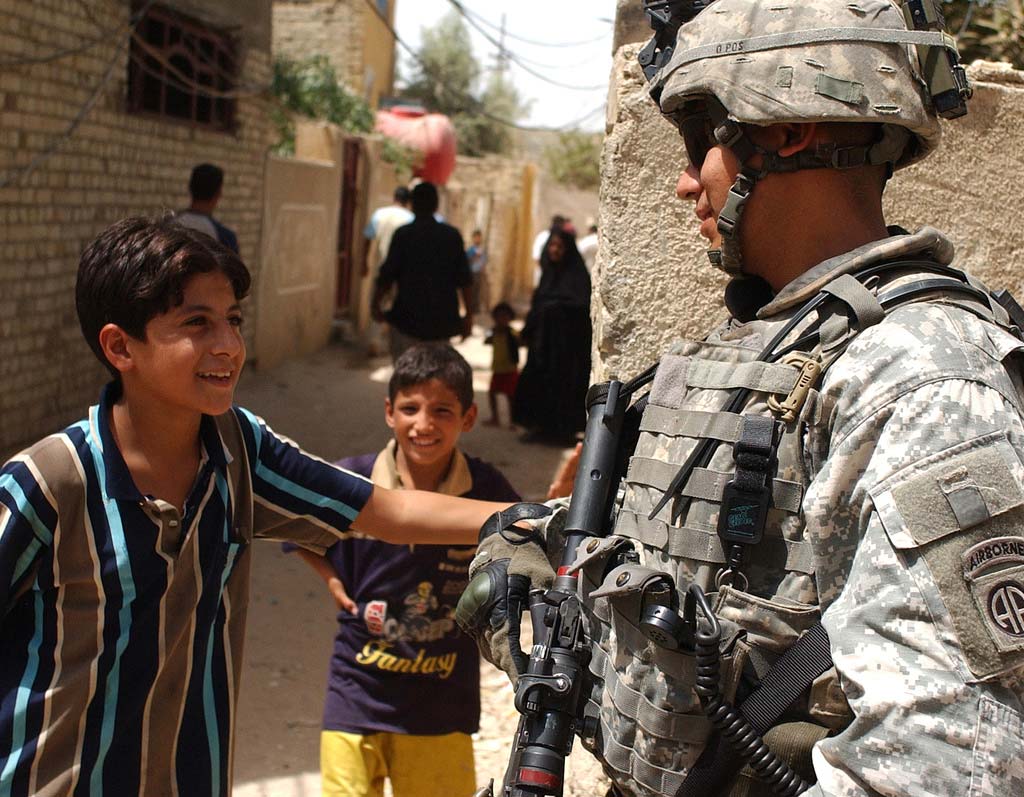We Have Met the Enemy, and He is Us
By Krishna Dharma Dasa | Окт 08, 2007

Probably few of you will have missed the recent announcement of the “Ig Nobel Awards”, given out by a group calling themselves the “Annals of Improbable Research”. This year their Peace Prize went to the Air Force Research Laboratory in Dayton, Ohio, for inventing a chemical weapon that has been nicknamed the “gay bomb”. Adding a new dimension to the old dictum “make love not war”, this weapon releases a cloud of gas that makes men irresistibly attracted to one another. Forgetting all about fighting, they would immediately throw down their weapons and go about embracing each other. Devilishly clever, what?
This marvellous weapon has yet to be tested in the field, and meanwhile wars grind on around the world, most notably in Iraq, which British Prime Minister Gordon Brown recently visited. So unpopular is this conflict that when Mr. Brown announced troop withdrawals during his visit, he was accused of currying public favour in the run up to a possible election. Liam Fox, the Shadow Defence Secretary, suggested he was using the troops as a “political football”.
War is of course never a game of any kind. It is an expensive and harrowing business, and any government whose country is embroiled in war will surely endeavour to extricate itself at the earliest possible opportunity. Clearly there are compelling reasons for not doing so in Iraq, even if these, as the more cynical might suggest, are only economic.
What though is the Vedic position on such conflicts? That is not always an easy question to answer. Certainly war is a part of Vedic politics, after all the Bhagavad-gita was spoken on a battlefield. And the reasons that would make war a Vedic imperative are much the same as those argued by today’s politicians, namely to resist or curb down aggressors.
Few of us would oppose any war that was truly being fought for this reason. Obviously we don’t want swarthy desperadoes swarming our countries, blowing up our trains, planes and buildings. And we surely want to avoid having them burst through our doors, offering us the choice of embracing their faith or having our gizzards forcibly removed. This would seem to be the scenario we are led to believe may occur if certain wars are not fought.
The difficult question is whether or not a given conflict truly has such an aim. We are not privy to all the machinations of government, and politicians as a whole lack an unblemished record of thorough honesty, so the doubts are there. But we have to accept that war is sometimes required.
Notwithstanding the necessity of some fights, the principle aim of Vedic morality is to attack the mindset that leads to aggression and unwanted conflict in the first place. In one famous episode described in a Vedic text, two violent thugs are about to be killed by the divine incarnation Lord Chaitanya, but his brother Nityananda checks him. “Let us destroy the criminal mentality,” he pleads, “not the criminal themselves.”
This is the real problem. Hatred, envy, anger, lust and greed–these are the actual enemies we face. Some of us succumb to them rather more than others, and hence dissent arises on one scale or another. But all of us find these nuisances assailing us at times, and when they do our peace of mind is naturally disturbed. In such a condition we become likely candidates for conflict, often turning on whoever happens to be available at the time.
If then we can find some way of subjugating these unwanted assailants we will naturally reduce all kinds of strife, both within and without. And that is precisely the aim of Vedic spirituality, to purify our hearts and minds, which should surely be the aim of any religious doctrine.
When we engage in genuine spiritual life we find our baser impulses subsiding. In the Bhagavad-gita, Krishna says, “A faithful person who is dedicated to spiritual practice, who subdues the senses, will achieve pure transcendental knowledge and quickly attain supreme peace.”
This is the true test of our practice; are we becoming peaceful? Or are we coveting our neighbour’s ass, eyeing his wife, hating his race or religion, or just feeling plain disturbed for so many other possible reasons? If so it is perhaps time we reviewed our religious practices, or the absence of them. Far from being the cause of conflict, as it has become fashionable to suggest, religion properly practiced–offers us the only real hope of ever seeing an end to unwanted wars (with or without the gay bomb).















